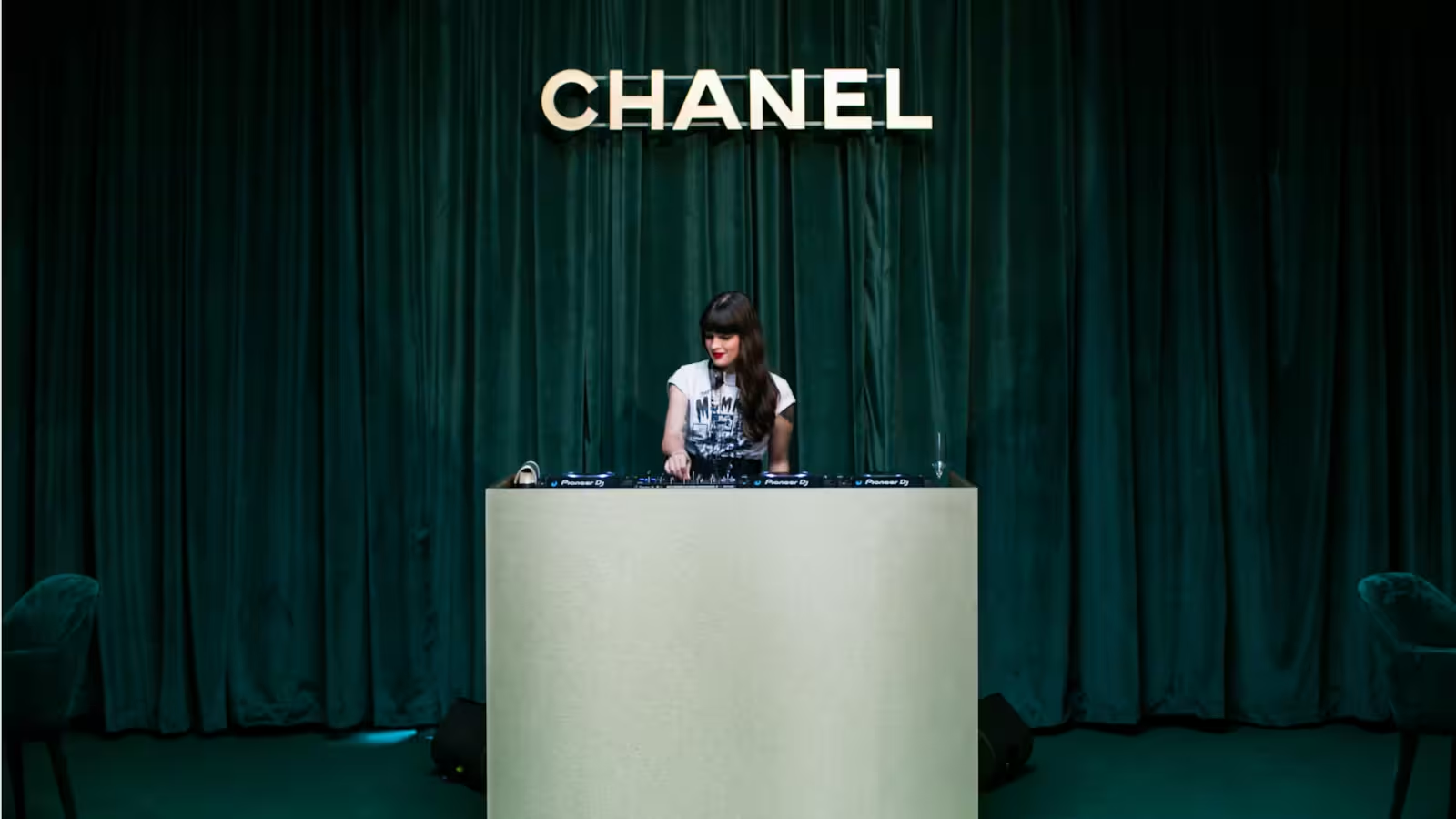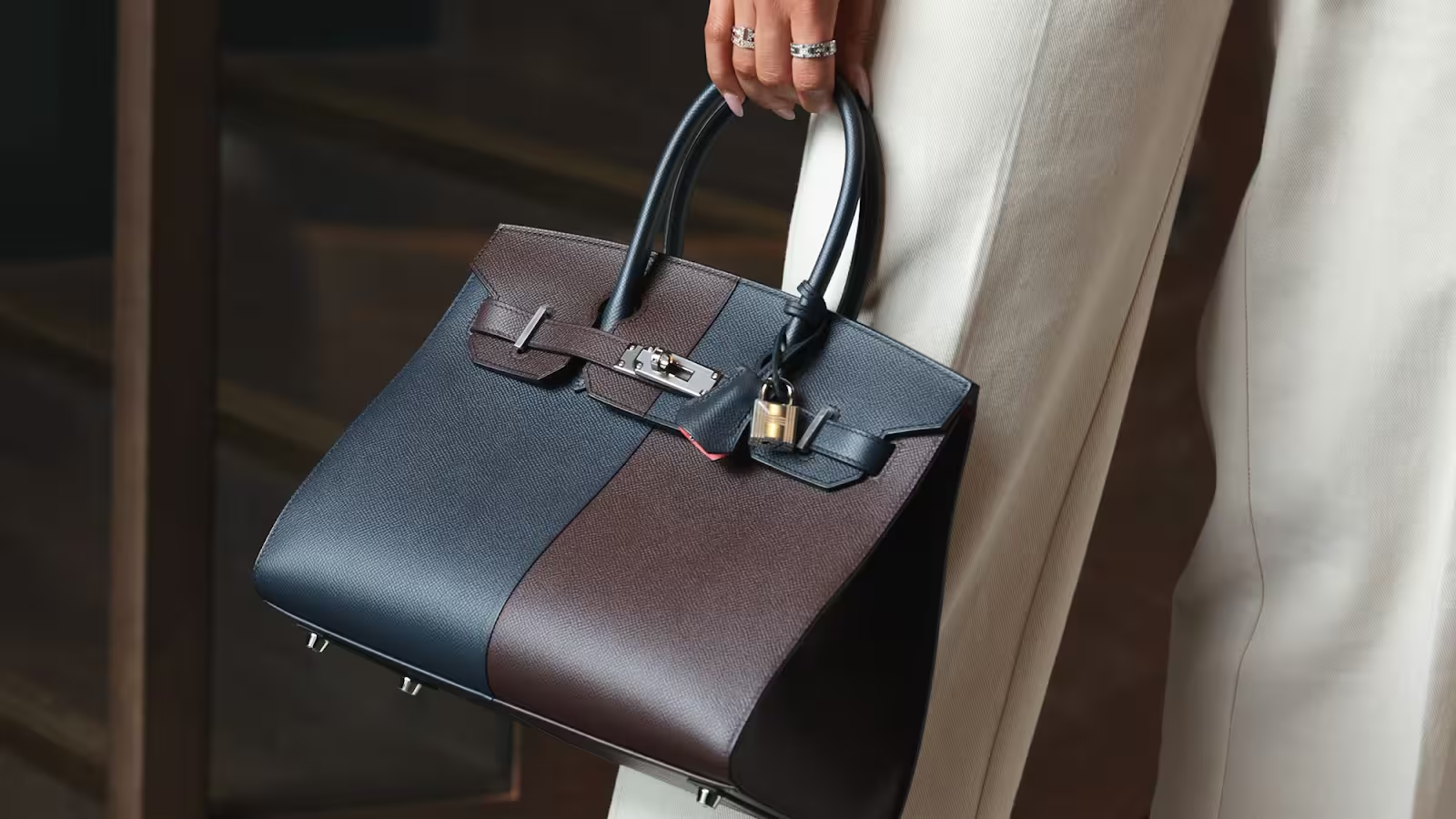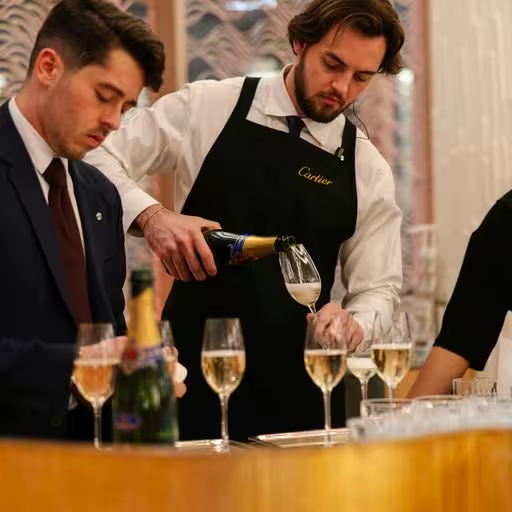
When it comes to luxury, standard loyalty tactics just don’t cut it.
I’ve heard some jaw-dropping stories from lavish shopping sprees to ultra-exclusive perks offered to high-net-worth individuals. In this elite world, traditional point-based loyalty programs don’t resonate. In fact, they can cheapen the brand. Luxury loyalty is not about discounts, it’s about preserving prestige, offering exclusivity, and delivering white-glove experiences.
Luxury brands thrive on scarcity, status, and storytelling. They don’t chase mass appeal — they protect their identity. That’s why many high-end labels take extreme steps to guard their value. For example, Louis Vuitton has been known to destroy unsold inventory just to avoid gray-market dilution. It’s not wasteful, it’s strategic brand preservation.
In this rarefied space, loyalty programs serve a different purpose. They’re not tools for repeat sales, they’re instruments of recognition, personalization, and status elevation. The top 5% of customers often contribute the majority of revenue, so nurturing these VIPs with tailored experiences and premium service is essential.
Luxury is as much about how a brand makes you feel as what it sells. And that emotional connection is where a well-designed loyalty program becomes powerful.
In this guide, we’ll explore what makes a luxury loyalty program successful, how iconic brands do it, and how you can craft one that elevates, not dilutes your brand.
What Makes a Loyalty Program “Luxury”?
Luxury loyalty programs are designed to elevate, not just retain customers. Unlike traditional point-based systems, these programs focus on status, personalization, and emotional connection. Here’s what sets luxury loyalty apart:
1. Exclusivity and Status Symbolism
A luxury loyalty program isn’t open to everyone — and that’s the point. Whether it’s invitation-only access, spend-based tiers, or discreet membership levels, exclusivity is central. Customers aren’t just rewarded — they’re recognized. Entry into these programs signals prestige, aligning perfectly with the aspirational identity of luxury brands.
2. Personalization at Scale
Personal touch is everything in the luxury space. Brands gather detailed insights to craft hyper-personalized experiences — from curated product recommendations to custom gifting. The more a customer feels known and understood, the more emotionally invested they become. It’s loyalty based on intimacy, not transactions.
3. Elevated Rewards and VIP Treatment
Forget generic discounts. Luxury loyalty rewards might include private shopping events, early access to new collections, personalized stylists, or even once-in-a-lifetime travel experiences. These benefits reflect the high expectations of affluent customers and reinforce a sense of special treatment.
4. Emotional Connection and Brand Identity
Luxury is about storytelling. Every interaction should reinforce the brand’s values, heritage, and aesthetic. Loyalty programs serve as another touchpoint in that narrative — strengthening emotional ties through thoughtful gestures, cultural relevance, and consistent branding.
Why Loyalty Is Crucial for Luxury Brands
In the world of high-end fashion, beauty, and hospitality, customer loyalty is about more than repeat purchases, it’s about building lasting emotional relationships with the few who matter most. Here’s why luxury brands can’t afford to ignore loyalty.
1. High Customer Lifetime Value vs. Low Purchase Frequency
Luxury customers don’t buy often — but when they do, they spend big. A single purchase can equal months of revenue from an average buyer. That’s why nurturing long-term relationships with high-spending clients is far more valuable than chasing one-time sales. A well-structured luxury loyalty program helps brands maximize lifetime value (LTV) by encouraging repeat engagement and elevating brand connection.
2. Emotional Brand Loyalty and Identity Signaling
Luxury is emotional. People don’t just buy products — they buy status, self-expression, and the feeling of belonging to an elite group. Loyalty programs give customers more than points—they offer recognition and identity reinforcement. Being a “preferred client” or “inner circle” member becomes part of how they define themselves.
3. Protection During Economic Downturns
When markets shift or luxury spending slows, loyal customers become your safety net. They’re more likely to continue purchasing, recommend your brand, and engage across channels. A strong loyalty base helps brands remain resilient through volatile economic periods by maintaining a core audience of committed buyers.
Key Features of Successful Luxury Loyalty Programs
Luxury loyalty programs aren’t built on points or coupons — they’re built on prestige, experience, and deep emotional connection. The best programs share a few key traits that cater to the expectations of high-net-worth clients. Let’s break down what makes them truly exceptional.
Tiered Membership with Elite Access
Tiered structures are common in luxury loyalty, but they work differently than in mass-market programs. Instead of simple bronze-silver-gold tiers, luxury brands craft levels that feel aspirational and exclusive. As customers spend more or engage with the brand over time, they gain access to higher tiers with increasingly premium perks — like early access to limited collections or private events. It’s about rewarding loyalty with status, not just stuff.
Invitation-Only or Spend-Based Entry
Many luxury loyalty programs are intentionally hard to access. Customers can’t just sign up — they need to be invited or reach a certain spending threshold. This exclusivity adds to the brand’s allure. Being part of a “private client” group or a secret tier signals prestige, and customers wear that badge with pride. It’s an effective way to maintain brand integrity while recognizing top spenders in a meaningful way.
White-Glove Personalization
In luxury, the smallest details matter. That’s why top-tier loyalty programs focus heavily on personalization. Brands use client data to offer handpicked recommendations, personalized gifts, and bespoke experiences. Whether it’s remembering a customer’s preferences or tailoring communication style, every touchpoint is crafted to make the customer feel seen and valued.
Access to Exclusive Experiences
Forget the generic discounts — in luxury, the most valuable rewards are experiences. Think private dinners with designers, early previews of new collections, invitation-only runway shows, or custom travel itineraries. These once-in-a-lifetime moments forge deep emotional bonds between the customer and the brand — and they’re often what clients remember most.
Premium Customer Service and Support
Service is everything in the luxury world. Successful programs provide VIP clients with dedicated account managers, priority assistance, and seamless resolution of any issues. This type of premium support doesn’t just solve problems — it reinforces the customer’s belief that they’re special and well taken care of.
Sustainability and Ethical Brand Alignment
Modern luxury customers are increasingly value-driven. They care about sustainability, transparency, and ethical practices. Loyalty programs that reflect those priorities — such as offering eco-conscious rewards, donations to meaningful causes, or carbon-neutral benefits—can build a stronger emotional connection and align with the values of today’s discerning consumers.
Real-World Examples of Luxury Loyalty Programs
Luxury loyalty is often subtle, personalized, and deeply tied to brand storytelling. Rather than relying on traditional point-based systems, many high-end brands create emotional loyalty through exclusivity, rarity, and unforgettable experiences. Here are some standout examples:
Chanel – Discreet Relationship Marketing

Chanel’s loyalty strategy is rooted in discretion. The brand does not offer a public loyalty program — instead, it focuses on developing deep, personal relationships with high-spending clients. These VIPs often receive exclusive perks such as private viewings of new collections, invitations to fashion shows, and access to limited-edition items not available to the public.
In many cases, long-time customers are introduced to dedicated sales associates who act as personal stylists, remembering preferences, sizes, and previous purchases. This high-touch, tailored approach fosters a sense of belonging to a world that is intentionally inaccessible to most. Loyalty is earned, recognized, and nurtured privately — never advertised.
Hermès – Loyalty Through Rarity

Hermès has one of the most unique approaches to customer loyalty in the luxury world. There is no official loyalty program, no points, and no publicly available tiers. Instead, the brand rewards long-term engagement through controlled scarcity and subtle status signaling.
Purchasing a Birkin or Kelly bag — arguably Hermès' most iconic pieces — is not simply a matter of price but of relationship. Clients who consistently buy from the brand, especially across categories like ready-to-wear and home decor, are more likely to be offered coveted items. These privileges are quietly extended by sales associates, making each reward feel deeply personal and earned.
Loyalty here is about exclusivity and commitment — Hermès fans often become collectors, drawn in by the brand’s craftsmanship, heritage, and elusive access.
Cartier’s Le Cercle – Private Loyalty with Prestige

Cartier’s Le Cercle is a loyalty program, but you won’t find any signup forms or public details. It’s a private invitation-only circle reserved for Cartier’s most valued clients. Members enjoy early access to high jewelry collections, one-of-a-kind gifts, private events, and personalized support from Cartier specialists.
What sets Le Cercle apart is its emotional appeal. It’s designed to make loyal clients feel appreciated on a profound level. Invitations might include exclusive dinners in art galleries, watch previews in Paris, or personalized design consultations. The program is less about rewards and more about inclusion in the world of Cartier — one steeped in legacy, refinement, and excellence.
Ferrari – Loyalty Through Lifestyle and Exclusivity

Ferrari doesn’t have a traditional loyalty program — but it doesn’t need one. The brand tracks every buyer’s history, rewarding long-term Ferrari owners with unparalleled access to the brand’s inner circle. This includes priority access to limited-edition supercars (such as the LaFerrari or Monza SP2), factory visits in Maranello, private track days, and VIP passes to Formula 1 races.
Loyal customers can be invited to join the Ferrari Owners’ Club or elite programs like Ferrari Classiche, where they receive maintenance services for vintage models and historical certificates of authenticity. Every interaction is designed to make loyal customers feel like custodians of the brand’s legacy.
Even resale behavior is monitored. Ferrari limits who can buy specific models and discourages flipping through contractual obligations. This ensures loyalty isn't just rewarded — but expected.
Jacob & Co. – Ultra-Exclusive Client Experiences

Jacob & Co. takes luxury loyalty to a whole new level with its ultra-personalized approach. Known for extravagant timepieces and bold high-jewelry creations, the brand builds loyalty by offering experiences as bespoke as its designs.
Top clients are invited to private events in destinations like Monaco, New York, or Dubai — often tied to product launches, film festivals, or yacht shows. These aren't just events — they're curated luxury moments designed to immerse VIPs in the brand’s lifestyle.
For its most loyal buyers, Jacob & Co. may offer personalized watch engravings, custom diamond settings, or co-designed pieces. Clients feel like collaborators, not just customers. This deep emotional engagement drives long-term relationships and turns clients into lifelong ambassadors of the brand.
How to Build a Luxury Loyalty Program (Step-by-Step)
Creating a loyalty program for a luxury brand is about much more than increasing repeat purchases. It’s about reinforcing your brand’s prestige, connecting with high-value clients on an emotional level, and delivering experiences they won’t forget.
Here’s a step-by-step guide to help you design a luxury loyalty program that elevates your brand rather than diluting it.
Step 1: Understand Your Luxury Audience
Luxury consumers are not looking for bargains—they’re looking for value, status, and storytelling. Before launching any program, take the time to deeply understand who your best clients are.
Ask yourself:
- What motivates their loyalty?
- What experiences do they truly value?
- What emotional connection do they have with your brand?
Segment your audience by behavior and lifetime value, not just demographics. Your program should be designed with your top-tier customers in mind—those who generate the highest ROI and align with your brand’s image.
Step 2: Align Rewards with Brand Identity
In luxury, consistency matters. Your loyalty program should feel like a seamless extension of your brand — not an afterthought. That means every reward, benefit, and interaction must reinforce your visual aesthetic, tone of voice, and core values.
For example, if your brand stands for timeless craftsmanship, your loyalty program might offer early access to bespoke products or artisan experiences. If your brand is innovation-driven, think limited tech previews or custom-built exclusives. The rewards must feel on-brand — otherwise, they risk undermining the perception of value.
Step 3: Offer Experiences, Not Just Discounts
Discounts can cheapen a luxury brand’s image. Instead, focus on exclusive experiences that make customers feel privileged and emotionally connected.
Ideas include:
- Private shopping appointments
- First access to limited collections
- Invitations to brand-hosted dinners, runway shows, or global events
- Personalized gifts and handwritten notes
These moments create a sense of intimacy and access that mass-market loyalty programs can’t replicate.
Step 4: Use Technology to Enable White-Glove Service
Technology plays a powerful role in scaling luxury experiences without losing the personal touch. Use data and automation not to spam, but to enhance the customer journey.
Examples:
- Use CRM systems to track preferences, past purchases, and milestones
- Automate personalized messages for birthdays, anniversaries, or important dates
- Offer mobile access to concierge-style service, priority booking, or custom recommendations
When done right, tech can power a level of seamless service that feels ultra-premium.
Step 5: Keep It Exclusive — Not for Everyone
The magic of luxury lies in its scarcity. Your loyalty program should reflect that. Don’t make it too easy to join — curate your membership.
Use invitation-only entry, spend thresholds, or referrals from current VIPs to build a sense of prestige around the program. Exclusivity drives desire. When customers feel like they’re part of something rare and meaningful, they’re far more likely to stay loyal — not just for the perks, but for the identity it gives them.
Mistakes to Avoid in Luxury Loyalty
Launching a luxury loyalty program isn’t just about rewarding purchases — it’s about reinforcing your brand’s identity and delivering a flawless, premium experience. But even the most well-meaning program can miss the mark if it ignores the principles that define luxury. Here are five common mistakes that can undermine your efforts:
- Offering Generic Discounts: Discounts can dilute your brand’s perceived value. Focus on access, experiences, and exclusivity instead of price cuts.
- Over-Promoting the Program Publicly: Luxury thrives on discretion. Promoting your program like a mass-market campaign strips away its exclusivity.
- Lack of Personalization: Treating VIP clients like everyone else breaks trust. Use data to deliver curated, thoughtful experiences that feel one-of-a-kind.
- Poor Customer Support: High-value clients expect white-glove service. Delays, poor communication, or unresolved issues can quickly erode loyalty.
- Not Aligning with Brand Storytelling: Your loyalty program should mirror your brand's tone, values, and aesthetic. If it feels disconnected, it weakens your narrative.
Final Thoughts
At its core, a successful luxury loyalty strategy isn’t about points, discounts, or even repeat purchases — it’s about building long-lasting relationships rooted in trust, exclusivity, and emotional connection.
Luxury customers aren’t just buying products — they’re buying identity, belonging, and recognition. That’s why the most effective loyalty programs go beyond transactions. They offer prestige, celebrate brand heritage, and create moments that feel personal and unforgettable.
Whether it’s a private invitation, a custom experience, or simply feeling known by name, loyalty in the luxury world is deeply human. When done right, it doesn’t just retain customers — it turns them into lifelong brand advocates.
Invest in exclusivity. Deliver personalization. Protect your brand’s mystique.
Because in luxury, loyalty is never earned by perks alone — it’s earned by the experience.
This blog post was originally written by Dastan Chikeev and later updated for accuracy and relevance by Polina Kulikova.
What is your current returning customer rate?
Want to close the gap?
FAQ
How do luxury brands use scarcity in their loyalty strategies?
Luxury brands leverage scarcity by offering limited-edition products or exclusive experiences to top-tier loyalty members. This approach enhances desirability and reinforces the brand's premium positioning.
What distinguishes luxury loyalty programs from standard ones?
Luxury loyalty programs prioritize exclusivity, personalized experiences, and brand prestige over traditional point-based rewards. They focus on creating unique, high-value interactions that resonate with affluent customers seeking status and exceptional service.
What types of rewards are common in luxury loyalty programs?
Common rewards include personalized services, exclusive event invitations, early access to new collections, and bespoke products. These rewards aim to provide unique experiences that reflect the brand's luxury status.
What makes a loyalty program “luxury”?
Luxury loyalty programs focus on exclusivity, personalization, and emotional connection rather than discounts or points. They offer curated experiences, private access, and white-glove service that align with the brand’s high-end identity.
Do luxury brands use point-based loyalty systems?
Rarely. Most luxury brands avoid traditional point systems as they can feel transactional and diminish brand prestige. Instead, they reward long-term engagement, high spending, and brand advocacy through invite-only perks and premium experiences.
Can small luxury brands create effective loyalty programs?
Yes. You don’t need to be a global brand to build loyalty. Even boutique luxury labels can create high-impact programs by offering personalized service, curated gifts, and member-only access to new collections or events.
Why do luxury brands keep their loyalty programs private?
Discretion is part of the allure. Keeping programs invitation-only or low-profile enhances the feeling of exclusivity and makes members feel like they’re part of an elite group—not just one of many.
How can technology support luxury loyalty programs?
CRM tools, data analytics, and personalization engines can help brands deliver seamless, high-touch experiences. For example, tracking preferences, automating special date reminders, or enabling concierge-style support via apps or messaging platforms.
Trusted by over 15000 brands running on Shopify








